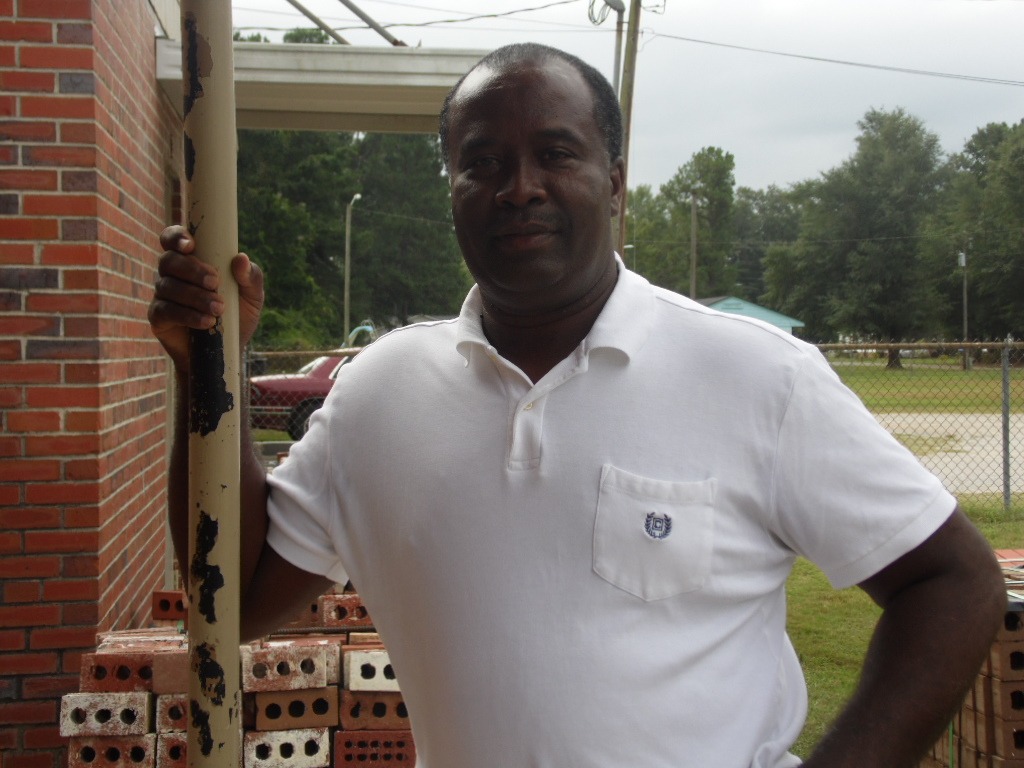Words: MASONRY Magazine
Photos: Fred Mason Jr.
Editor’s Note: In our first Instructor Spotlight series, we sat down with Masonry Instructor Fred Mason Jr. to learn more about how he got involved in the masonry industry and became an instructor. Fred has been teaching for nine years and has had a few students featured in MASONRY’s GEN NXT series. We’d like to thank Fred for being our first instructor to put the spotlight on and taking the time to talk with us.
MASONRY Magazine: Tell us a bit of yourself.
Fred Mason: I’m Fred Mason Jr., I’m 56 years old, and I started teaching in 2012, so this is my ninth year teaching. I started masonry in high school. My friends thought it was a good class to get into because they didn’t want to do a lot, but we did a lot whenever I got there.
At first, I thought it was gonna be an easy class, and some days it was easy, but on some days, we worked a lot there and had a lot of fun. I learned a lot and had a great instructor. Mr. Charles Mitchell taught me a lot. Once I got out of high school, I went straight to work, working for some companies, and got fired four different times. Then, I tried to become a brick mason and went from thinking that it was a brick mason back to being a laborer again and kept on plugging.
Finally, I started to feel like I was good enough and to call myself a freemason. I worked for a few companies throughout the years, and then I started my own company, and I did that for 22 years. I think I did pretty good at it. I did most of the residential stuff, which was a lot of fun, and I trained a few people during that time. Then when the economy slowed down in 2008, I did this job Brad Spencer hired me to do, and I met one of the guys from Columbus County Schools.
He told me they would be starting a master’s program and an early college, and he asked me if I was interested in teaching, and I said “sure,” and I did that. That’s how I got my start in high school teaching. I have a daughter who’s a nurse, and I have a granddaughter who is 14 and about six ft. tall.
M.M.: Is there anyone else in your family in the masonry industry, or were you the first?
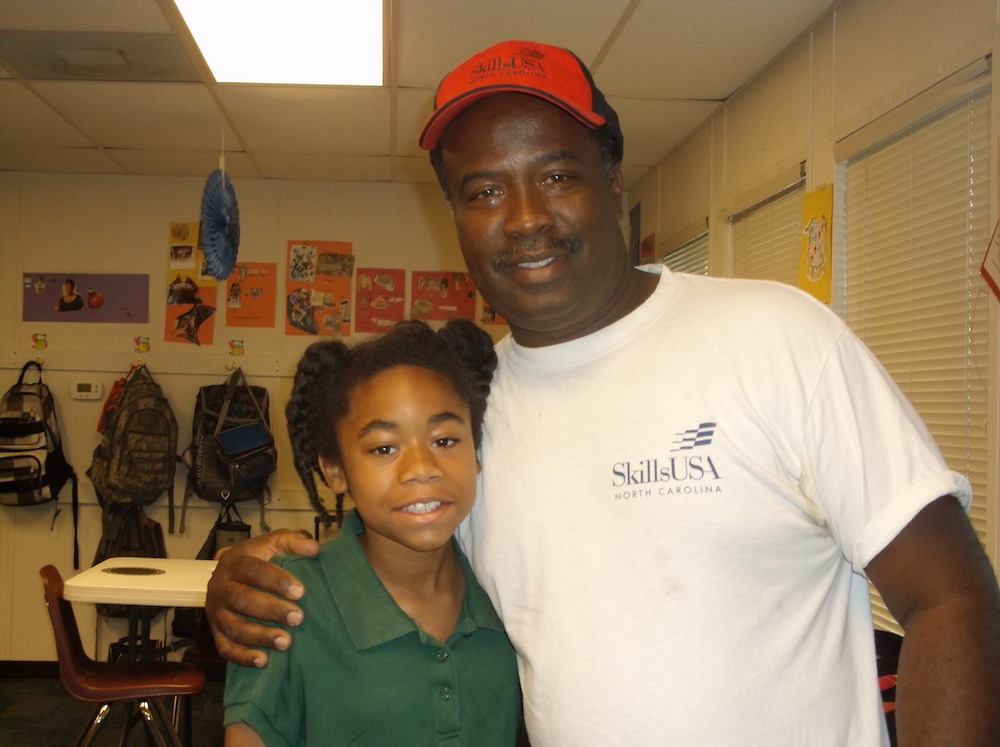
F.M.: My uncle was a mason when he was younger, I wasn’t interested in what he was doing at the time, but he’s the only one. Again it just started as a high school class, you know, hopefully, an easy class, but now it’s just me.
M.M.: You started off learning in school, and then you went from there. Did you do an apprenticeship, or how exactly did you get your start in the industry after school?
F.M.: I just went from construction site to construction site asking for a job and got hired that way. I didn’t do an apprenticeship during that time. In this area, we didn’t have the people that have those kinds of connections. This is a small rural area; we don’t have big contracts. I mean, the biggest firm around here may have eight people on the crew. So we didn’t have that kind of stuff to do an apprenticeship around here.
M.M.: When did you decide to become a mason instructor? Was that something that you always wanted to do? Or was it something that you find yourself liking or a desire to do after working in the field for so long?
F.M.: Well, there were times I thought about doing it. But I knew there were college classes I would have to take. I was once asked after we did this particular project at the high school, I said I’d fill out an application. So, I did not have the application, and they hired me. They told me I would take all these college classes, and I said, “Well, I’ll probably hang around long enough to get back and can’t go to war because I can’t do these college classes.” Fortunately, I was able to do the college classes and finish them. But it was very tough leaving the field with no technology and then walking into a school when almost everything is computerized. Now with all these emails, you have to have this computer to work. So it was a cultural shock to me. We knew that most technology we use inside the classroom.
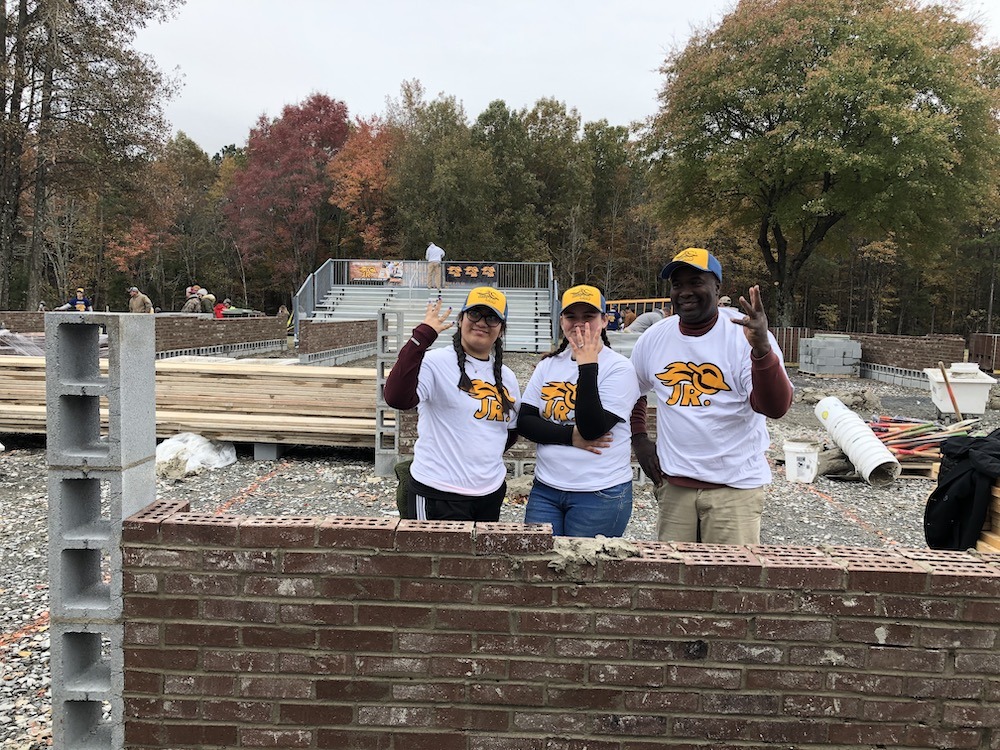
M.M.: What is the most fulfilling aspect of being a masonry instructor?
F.M.: Teaching the students, and they graduate and can and already have a job before leaving high school, which has been the most satisfying thing for me.
M.M.: What are some challenges that you face with students?
F.M.: I guess the challenges I face are whenever a student can be great today, and often the next day, that may not be the case, I can pretty much tell something is going on at home. You have to try to be very soft with that student because he knows something wrong is going on after I’ve seen it several times. It’s tough to have to deal with. Most of the tough things to deal with have a lot to do with students’ issues at home. Sometimes you realize that some people can come from really bad homes. Sometimes you can tell by their actions; sometimes, they feel that a student is not eating well at home. There are so many things you can pick up, and there are things that students will tell you about another student about their home life as well. So, that can kind of put mental stress on you sometimes, but you’re concerned about them.
We have changed so much between new staff members, new administration, new curriculum changes, new strategy phase that the state comes up with. Just when you start to get things down, things will change all over again, with something different. It can make you aware of everything around you. I’m laying bricks in the field, and it is physically tiring. Teaching is mentally tiring but can also be physically tiring too. I’ve worked all day long — 12 hours a day in the summertime and was exhausted. I’ve worked eight hours in the school, inside an air-conditioned building, and have been more exhausted after a day of teaching.
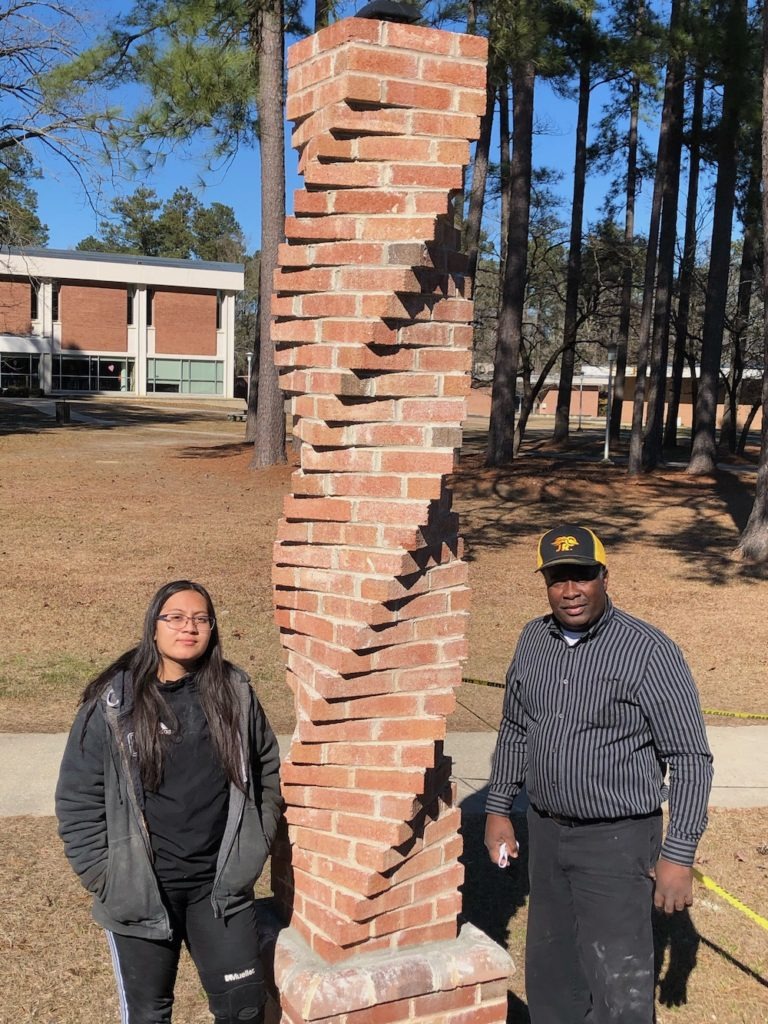
Since we’re an early college, we do three 90-minute periods a day. Once the students leave, we have our planning period. But some days, 15 minutes after they leave, I try to grade and do things like that. I find myself sitting at a computer, and I’m not asleep because I’m just so tired. But teaching is fun. I do enjoy what I do enjoy teaching.
M.M.: How has COVID-19 impacted masonry education and instruction overall, and what have you guys done to keep students engaged and keep them motivated to be in classes much they’re able to say that they can’t be in class?
F.M.: Well, we’ve had some time where we were 100% virtual, and then there were times we would have one group of students two days a week and one group of students the other two days a week. Then on Wednesday, we just have our virtual class for everybody. For my upper-level students, I had all of them come to the school and pick up bricks, blocks, mortar, sand, and a whole complete set of tools. They made their home workstation. I do for them to send them projects online to do, and they will complete the projects. They would have to send me a 33-second video of their project to get their grade. So that’s pretty much how we did the hands-on part for the upper-level students. They were still working at home, and that worked out well.
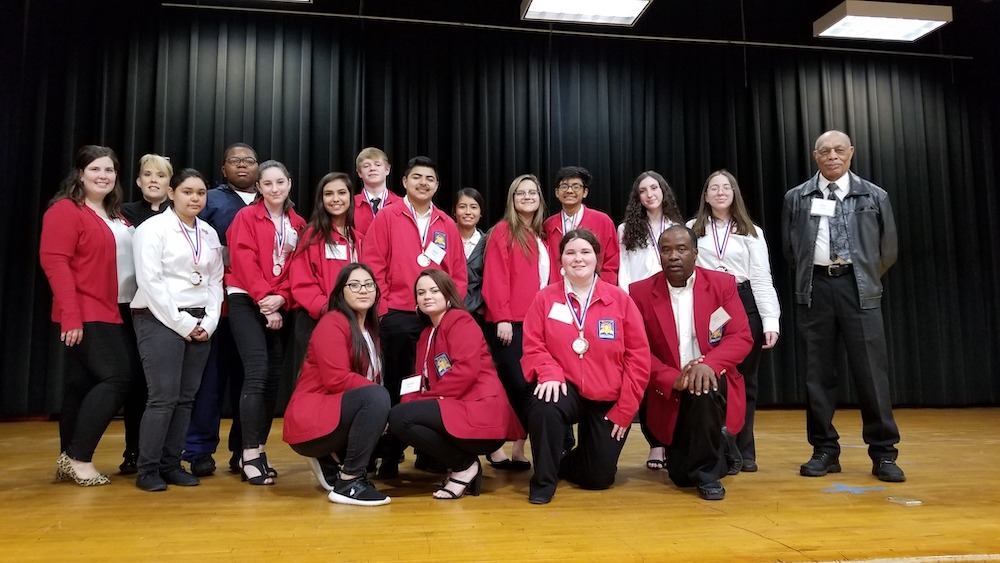
M.M.: What are some goals you may have for the next five to 10 years as a masonry instructor?
F.M.: We’re based out of community college now, so I would like to see some of my former students work with the college to become either an instructor or own their masonry businesses. That’s one thing I would like. I would also like to see some of our upcoming students graduate with Associate’s Degrees and construction. So that’s something we’re working on.
M.M.: Have more girls been signing up for masonry?
F.M.: Natltly Razo was the first female in our masonry class, and she started so well. As a freshman, she won. She won a national contest called a Hardy Memorial contest, and that was a big contest as a freshman for her to win. A lot of girls began to sign up for masonry because they’ve seen how good she was. Natltly felt like a mentor to a lot of the girls who have been in this class.
M.M.: What would you say is the most important piece of advice to give to a potential masonry student?
F.M.: The most important advice I can give to them is don’t give up on you. I will say I don’t give up because, you know, most of the students have four classes here, and sometimes in the first class, I can tell that a student will be good. Sometimes they say the fourth class, but that’s not always true. They just try, and eventually, they keep on working hard, and they’ll get there. It just takes time, and practice, practice, practice.
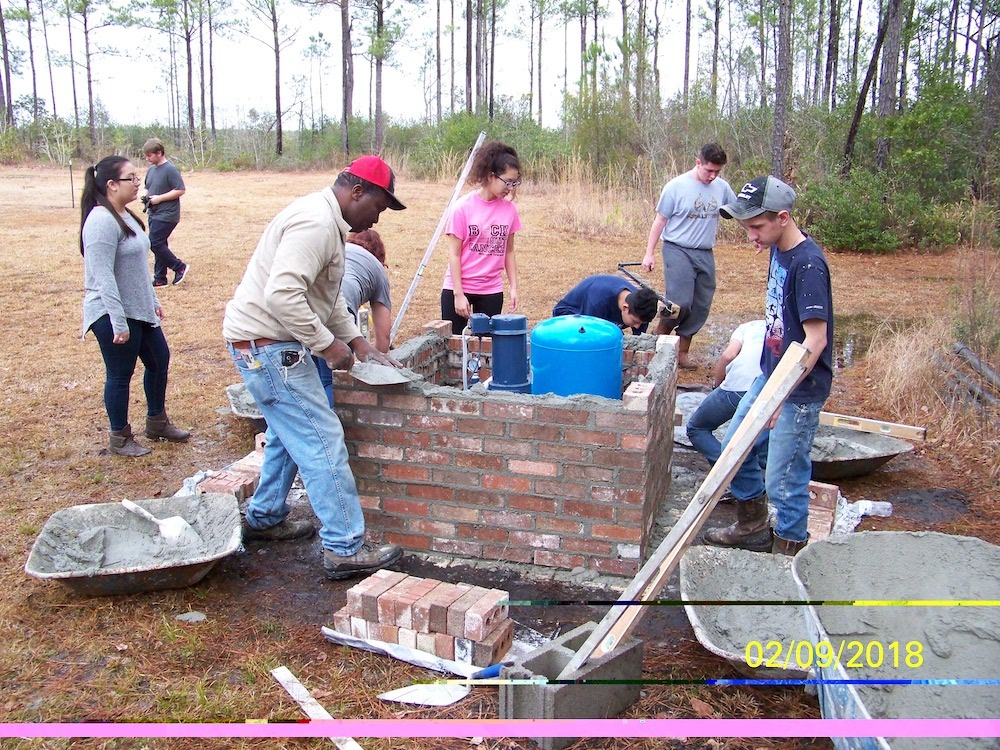
M.M.: How has masonry education evolved over the years?
F.M.: For me, it has been the industry support with all the different suppliers, mason contractors, and the NCMCA’s Ryan Shaver — the Workforce Development Program for Training. The things that he’s done and the contacts he’s made have helped my program out and many programs in the state of North Carolina out. Plus, these programs have ventured out to other states, and we will connect with them, but that’s one thing that’s made the programs go well. Some parts of the industry will give us bricks, blocks, mortar, and sand.
Some will visit our programs; they put on contests and get my students exposed to those contests. There have been contests throughout the years, and I competed in them back in the early 80s. Looking back from then to now, it’s so much bigger and broader; the industry support is huge. I think that’s what all CTE programs need; the industry behind them keeps making masonry strong like it is.
M.M.: Why is mason education so important to not just the industry and society as well?
F.M.: In my day, I would go to a jobsite and say, “Hey, I took a vocation in school, can I get a job?” A lot of times, you get hired, but in my case, I got fired 44 times — I had some training, but it’s not the way training is now. It is different now; we go through all those different stages the NCCER programs have. I try to take my student through all the different things we do on a jobsite. We set corner poles, and we build fireplaces and doorsteps; we use grout when we go through all these things.
In other words, when we educate them well enough here and when the students go to these competitions. The mason contractors can see that these students can have the tools they need to build a great project, and they say, “Hey, I can hire that student and can work with them.” So what we’re doing now, if done effectively, when the mason contractors come to those contests and see our students. They know that we’ve given that student enough training to where they can go ahead and complete that training through an apprenticeship and things like that. They must get that training here now.
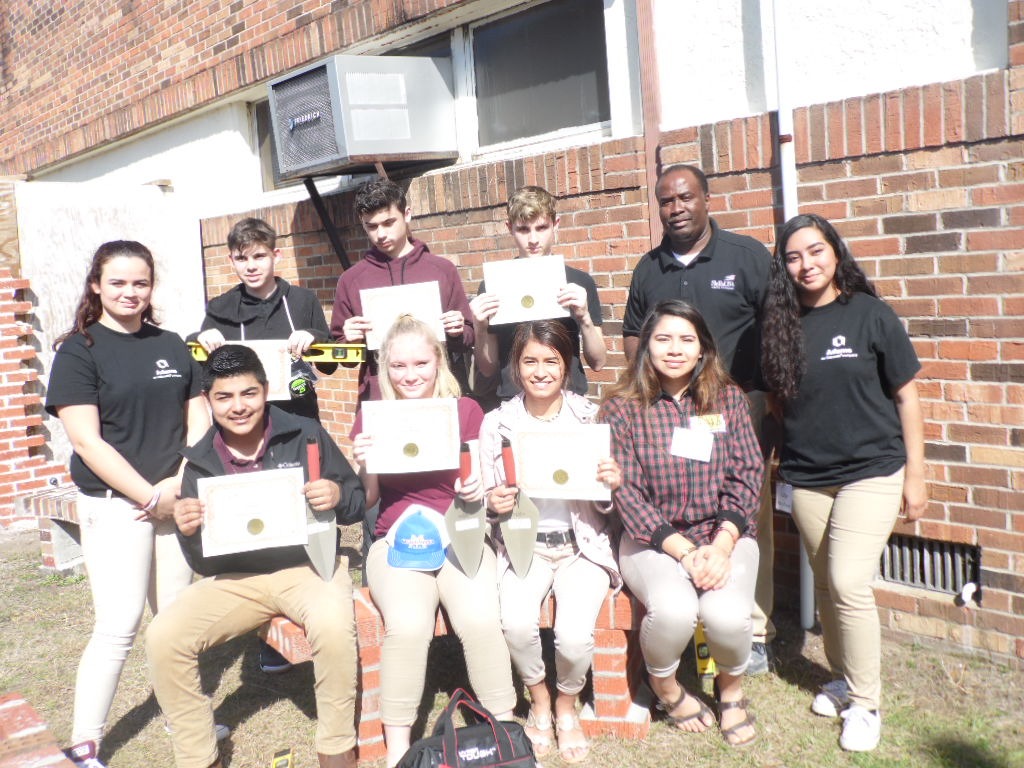
M.M.: What would you say is the benefit of going into the masonry field?
F.M.: If you like working outside, that’s one thing, you’re getting a lot of exercise. You’re not working at the same place all the time. You learn a lot, make good money, and look back and say, I built this. It’s just fun to me, and you get to live knowing that working with brick and block fun. So that’s some of the reason I was, I would say, You’re always learning something in masonry. The other thing is, if you become a good mason, you can go anywhere and find a job.
